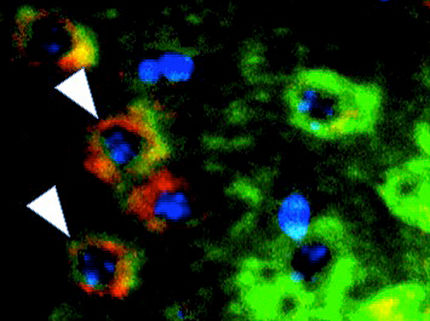New Data Supporting Cladribine Tablets as a Potential New Therapeutic Option for Relapsing Forms of Multiple Sclerosis
Advertisement
Merck KGaA announced that new data providing further understanding on Cladribine Tablets as a potential new therapeutic option for relapsing forms of multiple sclerosis (MS) were presented at the 62nd Annual Meeting of the American Academy of neurology (AAN). Cladribine Tablets, Merck’s proprietary investigational oral formulation of cladribine, is currently under regulatory review in a number of countries.
“The relevance of the CLARITY study is further substantiated by the series of additional analyses presented at AAN”, said Bernhard Kirschbaum, Head of Global Research and Development of the Merck Serono division. “We are committed to continuing to work with regulatory authorities to bring Cladribine Tablets to patients at the earliest point in time.”
The data presented at AAN are from pre-specified and post-hoc analyses of the Phase III CLARITYa clinical trial and show that the administration of Cladribine Tablets in study subjects resulted in:
- Increase in the proportion of patients with disease activity-free status compared with the placebo group over the entire 96-week study (43% and 44% of patients treated with Cladribine Tablets total dose of 3.5 mg/kg and 5.25 mg/kg respectively compared with 16% of patients who received placebo - p<0.001 for both Cladribine Tablets groups) with statistically significant findings as early as 24 weeks (67% and 70% of patients treated with Cladribine Tablets total dose of 3.5 mg/kg and 5.25 mg/kg respectively compared with 39% of patients who received placebo – p<0.001 for both Cladribine Tablets groups). Disease activity-free status was defined as having no clinical activity (no relapse and no sustained disability progression) and no radiological activity (no T1 Gd+ lesions and no active T2 lesions) over the 96-week study.
- Reductions in annualized relapse rate (ARR) compared to the placebo group over 96 weeks across the spectrum of baseline demographics and disease characteristics included in the CLARITY study (gender, age, treatment history, number of relapses in the 12 months preceding study entry, baseline disease disability, baseline MRI activity and burden of disease).
- Reduced consumption of healthcare resources, a decreased need for societal support, improvements in patient productivity, and reductions in total non-drug expenditure, relative to placebo, as measured by data collected in the CLARITY study with a ‘resource utilization form’ at baseline and at scheduled patient visits.
- Decrease of proportions of circulating CD4+ T cells relative to the total number of lymphocytes at the end of treatment periods compared to baseline, while the proportions of other lymphocyte subtypes (CD8+ T, B and natural killer cells) were preserved or increased relative to total lymphocytes.
Overall, the frequencies of adverse events by MedDRA System Organ Class in both Cladribine Tablets treatment groups from the CLARITY study were comparable to those observed in the placebo group. The most commonly reported adverse events were headaches, upper respiratory tract infection, nasopharyngitis and nausea. Lymphopenia, an expected event based on the presumed mechanism of action of cladribine, occurred more frequently in the Cladribine Tablets treatment groups (3.5 mg/kg total dose: 21.6%; 5.25 mg/kg total dose: 31.5%; placebo: 1.8%). The overall rate and incidence of infections in patients treated with Cladribine Tablets and placebo were similar. Herpes zoster infections were reported in 2.3% of patients treated with Cladribine Tablets. These herpes infections were localized to the skin and responded appropriately to treatment.



















































